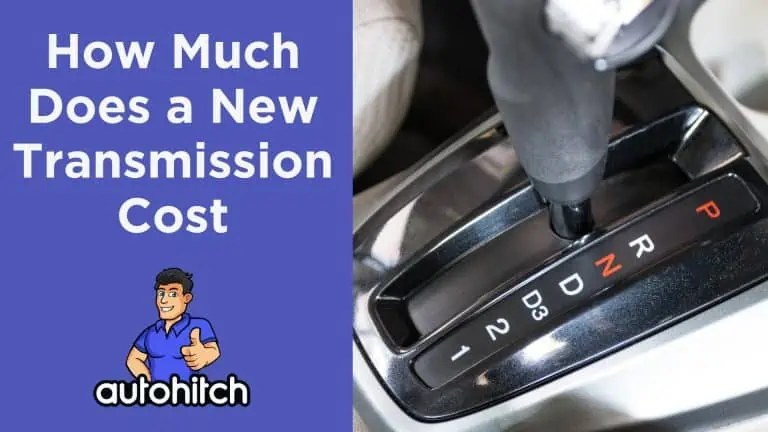If you think the time has come for a transmission replacement, the first obvious question you’re dreading asking is probably: How much is a transmission?
The cost of a new transmission can vary significantly, influenced by factors such as the type of transmission, the vehicle’s make and model, and labor costs.
New Transmission Cost
On average, the cost of a new transmission is about $2,600, with prices ranging from $1,800 to $3,400. However, in some cases, the cost of a new transmission can reach up to $7,100.
The labor costs associated with transmission replacement typically range between $79 and $189 per hour, averaging a total of $1,000 for the entire job, depending on the experience and expertise of your mechanic.
If these prices are scaring you, don’t worry because below, I will give you some more options, such as getting a rebuilt transmission or potentially buying a used transmission.
Related Articles to Read:
Table of Contents
Transmission Repair vs Rebuilt Transmission Cost
Basic transmission repairs to address issues typically cost $300 – $1,400 on average depending on the problem, and minor issues usually fall within this repair range.
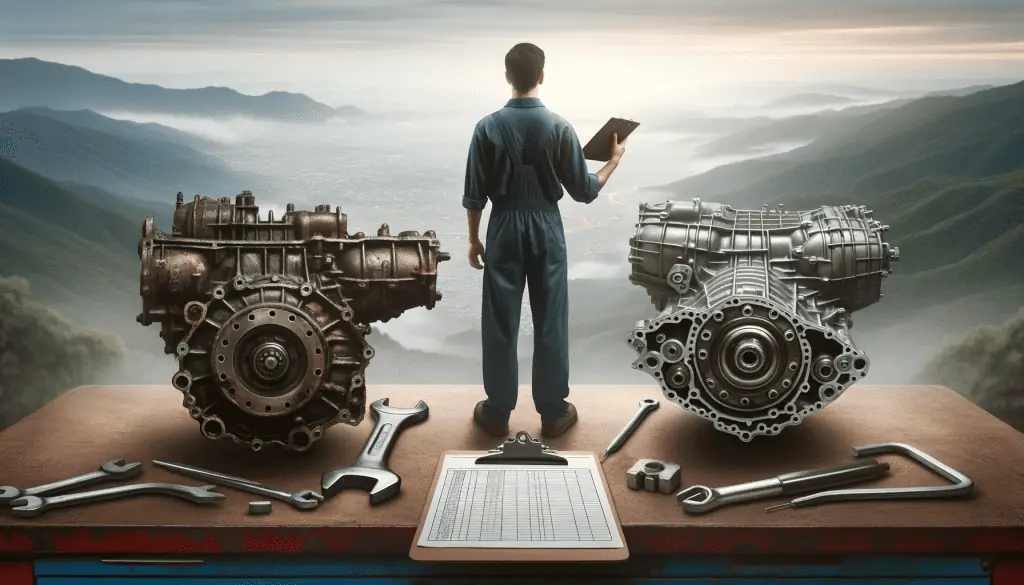
Cost of Transmission Repairs
- For example, replacing a faulty clutch can run $800 – $1,500 for parts and labor since clutches wear out frequently.
- For minor transmission problems, targeted repairs are often the most affordable solution.
Cost of Transmission Rebuilds
- In contrast, completely rebuilding a transmission has similar total costs to replacing it, averaging $1,100 – $2,800. Make no mistake: Rebuilds are extensive projects.
- But major issues will require a full rebuild or replacement despite the higher costs.
Carefully diagnosing problems is key to determining the best fix.
| Service | Average Cost |
|---|---|
| Repair | $300 – $1,400 |
| Rebuild | $1,100 – $2,800 |
Comparing Manual and Automatic Transmission Replacement Costs
Manual and automatic transmissions have significantly different replacement costs:
On average, manual transmissions cost $1,500 – $3,000 to replace. In comparison, automatics usually run $2,000 – $4,000 for a full replacement, which is the standard price range.
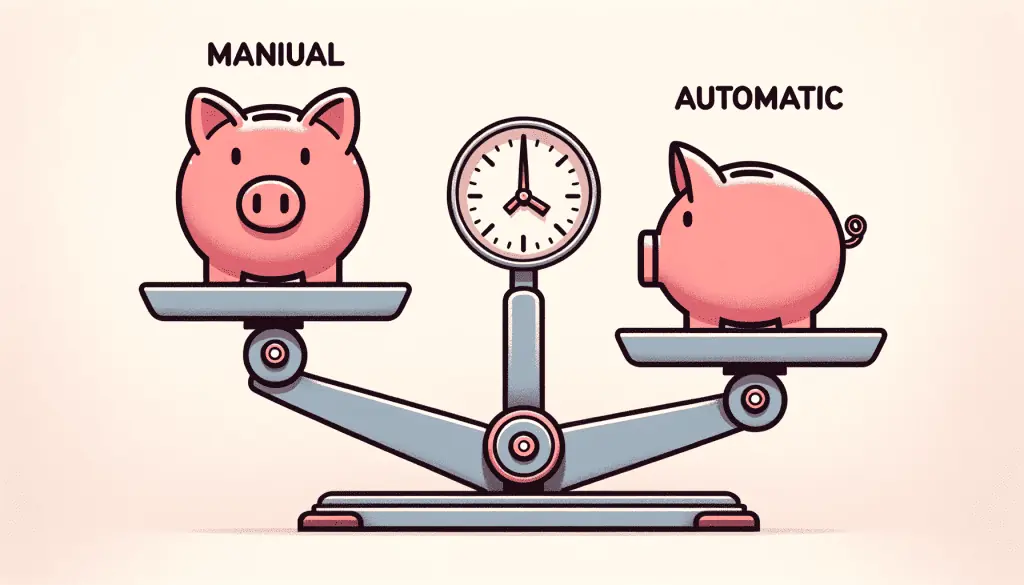
Manual Transmission Prices
- Non-luxury vehicles fall on the lower end of the cost scale while luxury cars have much higher prices due to more complex parts.
- Labor for installation adds between $500 – $1,200 to the total cost. This covers the mechanic’s work to install the new transmission.
- Manuals often require repairs like clutch replacements every 60,000 miles or less, especially with aggressive driving. This ongoing maintenance adds to long-term costs.
Automatic Transmission Prices
- Automatics may require less frequent repairs and maintenance overall compared to manuals.
- The internal complexity of automatics leads to potentially higher upfront replacement costs.
- But avoiding repeated repairs means lower lifetime costs in many cases.
Overall, while manual transmissions are generally cheaper to replace upfront, automatic transmissions can end up costing less in the long run when accounting for maintenance and repairs.
| Transmission Type | Average Replacement Cost |
|---|---|
| Manual | $1,500 – $3,000 |
| Automatic | $2,000 – $4,000 |
Cost of a Used Transmission
If a new transmission is out of your budget, a used transmission might be a viable alternative. Used transmissions cost about $1,150 on average, with prices typically ranging from $800 to $1,500.
While this option can be more budget-friendly, ensuring the used transmission is in good condition is essential to avoid future issues and additional costs.
Detecting Transmission Issues
Considering the cost of major repairs I discussed earlier, you should always try catching problems early before small transmission issues escalate into major repairs!
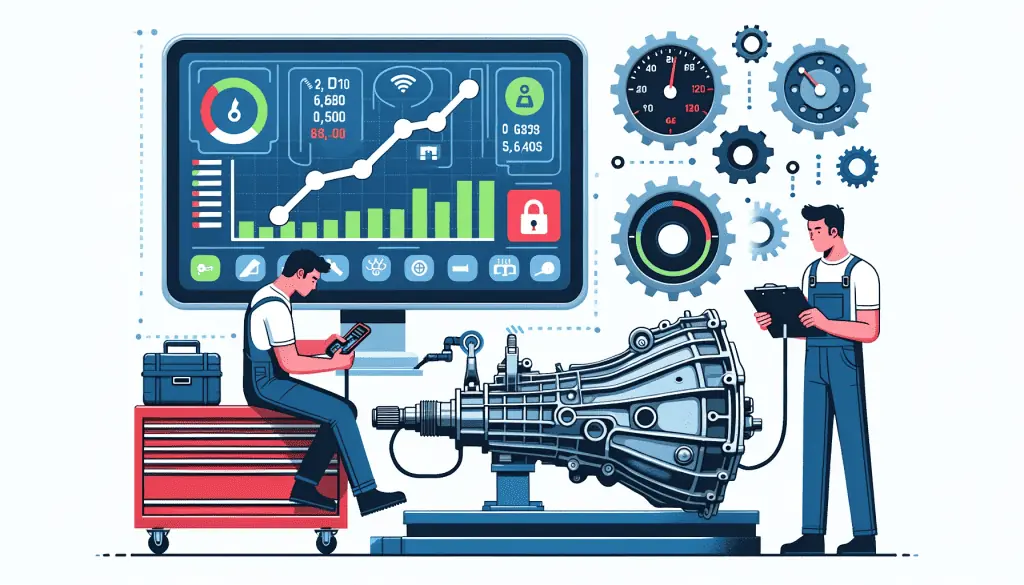
Drivers should watch for common warning signs of potential problems including difficulty shifting, gears slipping, unusual noises, leaks, and warning lights.
Monitoring fluid condition and being aware of symptoms can help identify issues in the early stages.
Key Transmission Problem Symptoms
- Hard shifting or grinding when changing gears
- Gears slipping under acceleration
- Unusual noises like buzzing, grinding, or whining
Importance of Fluid Checks
Regularly checking the transmission fluid level and condition can provide vital clues to developing issues. Discolored or dirty fluid often means problems are brewing and should be addressed.
Expert Tip:
If you have not changed your transmission fluid for an extended period of time, such as over 100k miles of driving, you could actually do more harm than good by changing your fluid.
The theory behind this is that old and dirty transmission fluid contains particles and debris that, over time, might actually start helping the transmission shift gears. Replacing this fluid with new fluid would remove those particles and potentially result in slipping where there was none before.
Professional Diagnostic Testing
If symptoms arise, have a mechanic thoroughly diagnose any issues to pinpoint the root cause. They can conduct tests like:
| Diagnostic Test | What It Checks |
|---|---|
| Transmission fluid pressure test | Internal hydraulic pressure issues |
| Electronic diagnostic scan | Trouble codes stored in computer |
| Test drive | Experience symptoms firsthand |
Different Types of Transmission Services
Transmission Repair
This service involves fixing specific components of the transmission that are malfunctioning or damaged. It is usually the least expensive option and is recommended when only a few parts need to be replaced. However, in some cases, a repair may not be possible if the damage is too extensive.
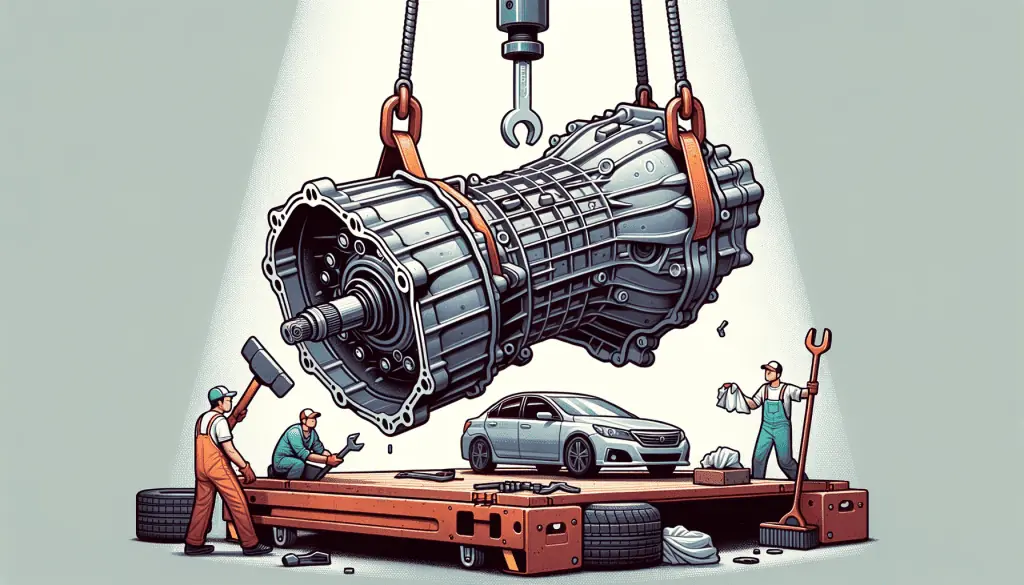
Transmission Rebuild
A rebuild involves taking the entire transmission apart, inspecting all components, and replacing any worn or damaged parts.
The transmission is then reassembled and reinstalled in the vehicle. This option is more thorough and can restore an older or worn-out transmission to a road-worthy condition.
While more expensive than a repair, it is generally less costly than a full replacement.
Transmission Replacement
This service involves removing the old transmission and installing a completely different one, either new or remanufactured.
This option is recommended when the current transmission is severely damaged or when the cause of the problem cannot be determined. Replacing a transmission is the most expensive option.
Using a Transmission Repair Cost Calculator
To get a more accurate estimate of your potential transmission service costs, consider using a transmission repair cost calculator, such as the one available on Kelly Blue Book. These calculators can provide you with a personalized estimate based on your vehicle’s make, model, and the extent of the transmission issues.
More Transmission Repair Cost Calculators:
Conclusion
Whether you’re considering a new, used, or rebuilt transmission, it’s crucial to consult with a professional mechanic or transmission specialist. They can provide you with an accurate estimate and help determine the most appropriate solution for your specific situation.
Remember, the best type of transmission service for you depends on factors like your vehicle’s age and mileage, the severity of your transmission problems, the service’s costs, and the timeframe to complete the job.

